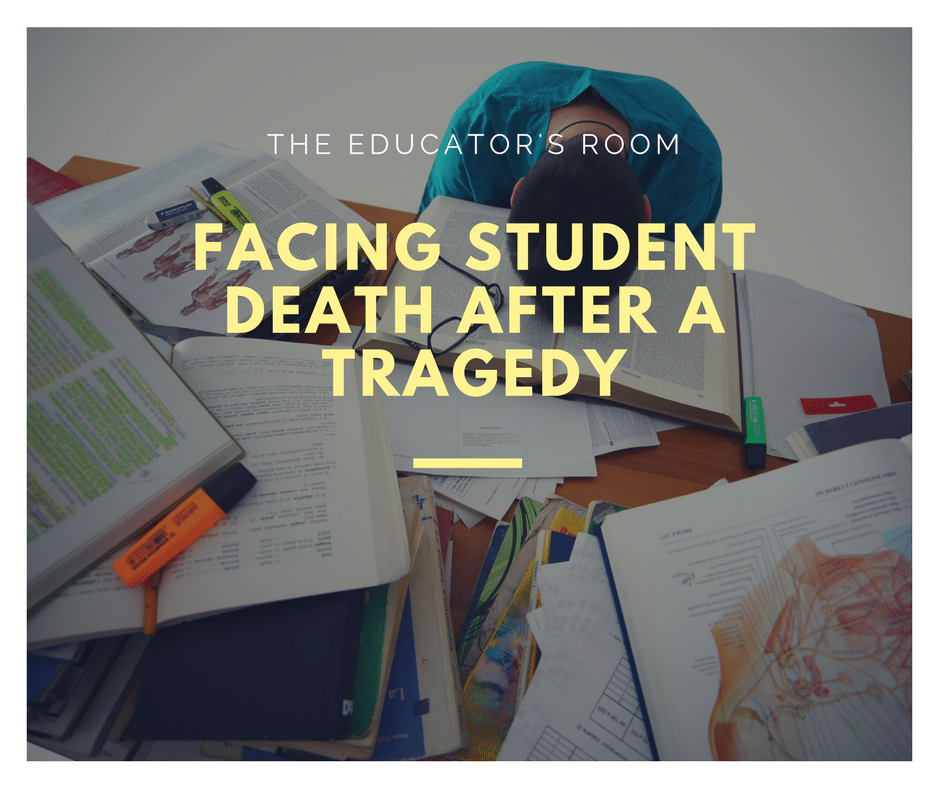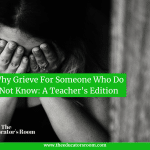I’m in total, utter shock. I just learned about the tragic passing of a former student. Upon looking at news articles about the passing of one, I unexpectedly stumbled upon the recent death of another former student. Talk about a punch in the gut: two young lives tragically plucked from the Earth when they should have had long lives ahead of them. These boys, “Jon” and “”Sam,” were killed one month apart from each other in fatal car accidents.
As I sit here trying to make sense of the situation, I can’t help but to ask questions of why?, what happened?, and was there anything more I could have said or done while they were in my classroom to keep this tragedy from happening?
The first student, “Jon,” was faced with an oncoming driver, in his lane of travel, causing the two vehicles to collide head-on, killing Jon within a short time of being rescued from the crash. The opposing driver, ironically, another student from the same high school, walked the halls and shared many of the same teachers six years earlier than Jon.
The second student, “Sam,” was also driving on local roads, and reportedly lost control of his car, hitting a curb, and flipping onto the roof, dying immediately on impact.
As I read the details surrounding each crash, I want to be transported back to the time I had with each student in class and be able to say something that may have somehow prevented this tragedy. We all shared a love of cars. Maybe I should have more forcibly stated the dangers of driving and the importance of treating cars like any other potentially deadly weapon, with extreme caution.
The Lives That Touch Us
We frequently hear the quote, “To teach is to touch a life forever,” (author unknown) but in so many ways, the reverse is also so true. I am forever changed by the interactions I’ve had with my students. Many times, teachers will be able to instantly remember a name upon seeing a face, but I am the opposite. I hear a name, and instantly remember the child’s face, and the experience we shared with the other students in their classes. Even years later, someone mention a former student’s name, and I am brought back to remembering some of our conversations, and what I recall about his or her personality at the time of our class together.
[bctt tweet=” I am forever changed by the interactions I’ve had with my students” username=”EducatorsRoom”]
The point, I suppose, of my sharing these tragedies with you is that while we only spend a short time of our lives – and of our students’ lives – with them, those interactions do make a lasting, if not lifelong, impact on both of us.
I am always a proponent of encouraging teachers to be vulnerable enough to help their students learn a little bit about them personally, so that in turn, the teacher can also learn more about the student. The more I know about a student in my class: likes/dislikes, dreams and aspirations for the future, etc. always gives me that foundation to start conversations and the basis to make our daily lessons more meaningful for the student.
In a case like this, knowing Jon and Sam beyond a name in my roster, or a score in the gradebook, makes handling the tragedies more difficult. I wouldn’t have it any other way though. The experiences we have in life are what makes us who we are, and as teachers, we have the opportunity to have hundreds, maybe even thousands, more individuals cross our paths than the typical working adult because of the nature of our work, and the opportunity to meet new faces at the start of each new school year.
Statistically, the longer you teach, the greater the chance of learning about the loss of a current, or former student. Whether you’ve been faced with one or many student losses, it does not make managing the grief any easier. Just like each student is different, and the opportunities you share with each class is special, each student tragedy is distinctive.
My best advice in handling this grief is to talk with colleagues who also worked with the student to share your feelings. If a student is lost while they were in your classroom, I also highly suggest purposefully talking about the loss of the student with his or her classmates. It is important that we embrace our feelings and grief, but also that we model how to do this with our students, and show that it is ok to feel grief as it is a natural part of the healing process for those who knew the lost student.




